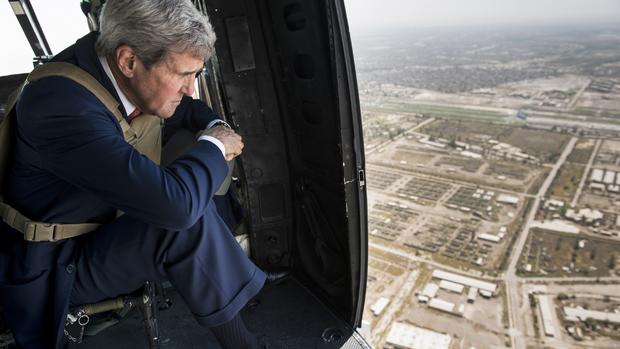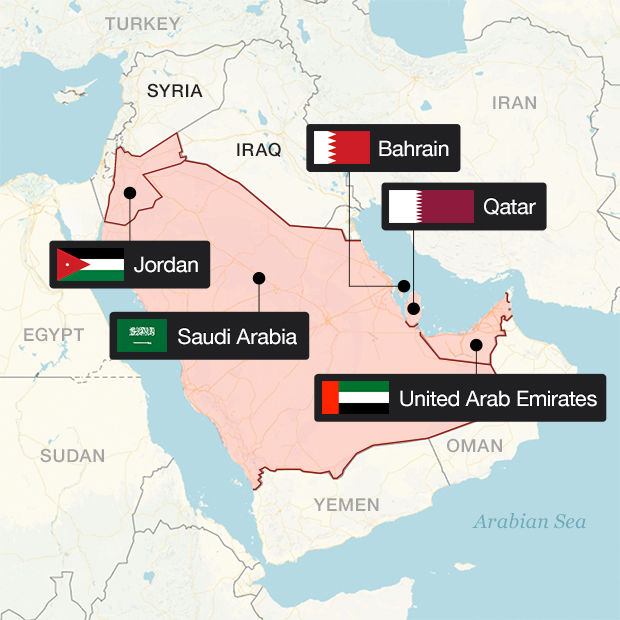How the Arab coalition against ISIS in Syria came together
It took 32 phone calls with Gulf leaders and a week-long, 6-stop tour of the Middle East and Europe for Kerry to lock in the coalition to carry out airstrikes against Islamic extremists inside Syria, according to a senior State Department official.
After visiting Baghdad September 10th, Kerry called the Saudis and asked to bring the Iraqi FM with him to Saudi Arabia to attend an anti-ISIS summit in Jeddah on September 11.
The following day, Saudi Arabia committed to participate in military action. That was September 11th. Saudi buy-in was key, U.S. officials say.
In a 2-hour-long meeting in Jeddah, Saudi King Abdullah told Kerry that he would do anything possible to help the coalition, including participate in airstrikes. This was a commitment they had also made last year following a brutal chemical weapons attack in a Damascus suburb alleged to have been carried out by the Assad regime.
Bahrain also committed during that anti-ISIS summit in Jeddah.
The UAE committed that weekend in Paris (sometime on either September 13 or 14) when Kerry met his UAE counterpart Abdullah bin Zayed. A senior State Department official says the U.S. wanted Gulf states in the lead.
Last Friday, before Kerry traveled to the UN, he met with Jordan's King Abdullah in D.C. That's when Jordan committed.
Qatar was harder to nail down. They committed within the past few days.


